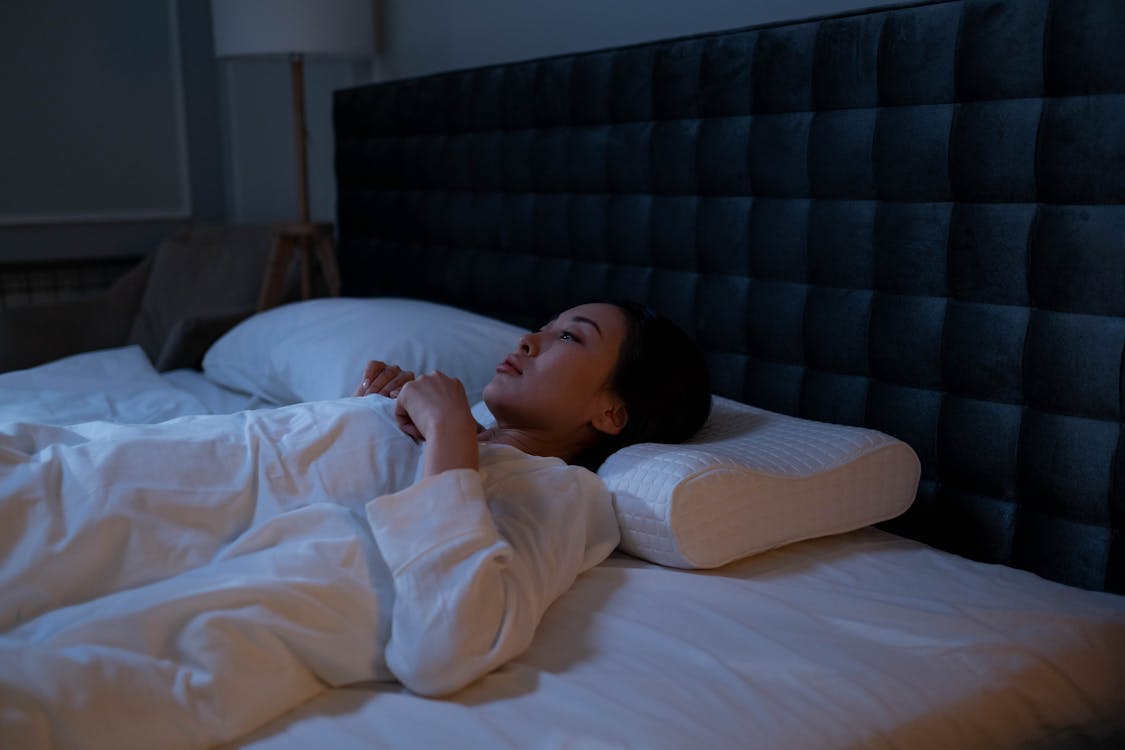
How do I shut my brain off at night
Share
If you’re one of the many working adults who struggle to turn their brain off at night and drift into a deep sleep, you’re not alone. Insomnia is a common issue among people of all ages, but it especially affects those with hectic lifestyles who are constantly dealing with stress and exhaustion. Fortunately, there are some simple strategies that can help you shut your brain off at night and get the restful sleep you need.

Create a Nighttime Ritual
Having a consistent nighttime ritual can be immensely helpful for people struggling with insomnia. It signals to your body that it’s time for bed and helps prepare it for sleep. This could include taking a relaxing bath, reading a book, or writing in a journal before bed. Whatever ritual you decide on should last about an hour and involve low-intensity activities like yoga or meditation that won’t energize your mind or body too much before sleeping.
Turn Off Electronics at Least an Hour Before Bedtime
It’s not just the blue light from electronic devices that keeps us awake at night; it also has to do with how we use them. We often spend our evenings scrolling through social media feeds, watching TV shows, playing video games – activities that can keep our minds racing instead of winding down for sleep. To ensure you get enough rest, make sure to turn off all electronics at least an hour before bedtime so your mind doesn’t get too stimulated right before trying to sleep.
Get Physical During the Day
Exercise is key for helping our bodies relax and fall asleep faster later on in the evening. Try scheduling specific workout times throughout the day so your body gets used to being active during daylight hours - this will help trigger its natural circadian rhythm which promotes healthy sleeping habits over time. Of course, if intense physical activity isn't your thing then something as simple as going for a leisurely walk can have similar effects!
Set Up Your Sleep Environment
Creating an optimal sleeping environment is essential for getting better rest – from adjusting the temperature of your bedroom to making sure there isn't too much noise coming from outside sources. It's also important to make sure there's adequate ventilation in order to reduce stuffiness and increase relaxation levels. Additionally, blackout curtains or blinds can be helpful in blocking out any light coming from outside sources so that only natural sunlight is allowed into your room when it's time to wake up each morning!
Avoid Caffeine Late in the Day
Caffeine is known as a stimulant – meaning it increases alertness, energy levels, and concentration. Consuming caffeine late in the day has been shown to interfere with normal sleep patterns because it takes up to six hours for half of its effects on our bodies wear off completely. To stay well rested throughout the night, try avoiding caffeine after 2PM or switch up what type of beverages you're drinking altogether by opting instead for decaf options like herbal tea!
Develop Healthy Sleeping Habits
Establishing healthy sleeping habits means going to bed around the same time each night and setting an alarm clock for about eight hours later (or whenever you need to wake up) - this way your body knows when it should start winding down and when it needs energy again! Another helpful tip is avoiding naps during daytime hours which can disrupt nighttime routines - although if absolutely necessary then try keeping them short (no more than 20 minutes) so they don't interfere too much with regular sleeping patterns later on in evening hours.
Make Bedtime Stress Free
Stress has been shown to cause long-term health issues such as high blood pressure as well as short-term problems like insomnia. To prevent stress levels from interfering with quality of sleep make sure bedtime remains stress free by focusing on calming activities like reading or listening music rather than worrying about unresolved tasks/emails/etc... This should help ease anxiety associated with these tasks so that falling asleep becomes easier!
Conclusion
Shutting our brains off at night doesn't always have easy solutions – but following these tips consistently over time can lead us closer towards achieving better restful slumber each night! With practice comes progress - so don't give up if results aren't immediate; eventually these strategies will become second nature resulting in improved overall health due both physically mentally due increased amounts energy available during daytime hours along fewer concerns surrounding amount quality obtained while resting after dark!




